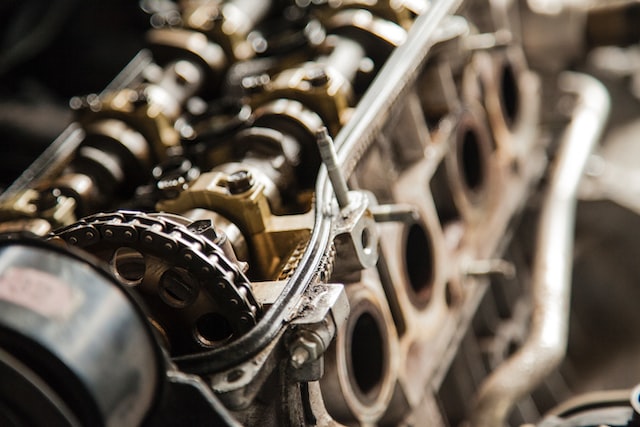A gas-powered snow blower might at some time in its life produce banging noises or loud popping sounds, known as backfires, which could be an indication of a fuel combustion or engine timing problem.
There might be more than one reason why a snow blower backfires. Possible reasons for a backfire include stale fuel in the tank (particularly ethanol fuel), a dirty carburetor, an air to fuel mixture that is too lean, a bad spark plug, and a poorly designed exhaust muffler. In addition, there might be a problem with the engine’s ignition timing, causing delayed sparking and incomplete combustion. To solve the backfire problem, you might fill up the tank with fresh fuel, clean the carburetor, replace the spark plug, adjust the ignition timing, or install a new muffler.
What is an engine backfire?
A backfire might be explained as the delayed burning of fuel either in the combustion chamber of the cylinder, or outside the cylinder in the exhaust pipe system.
What does an engine backfire sound like?
A backfire is a loud noise coming from the exhaust pipe or muffler that can be described as an explosive sound, such as a bang or a pop. This popping sound is commonly heard when starting, running, or shutting down the gasoline engine.
What are the main causes of snow blower backfires?
Generally, backfires are caused by stale gasoline, a dirty carburetor, or delayed engine timing. Here are my top three reasons for snow blower backfires:
- Stale gasoline can corrode and clog up the fuel system: in light of that, make sure that you use fresh gasoline, and add a fuel stabilizer to reduce problems associated with ethanol fuel.
- An incorrect air to fuel mixture that is either too lean or too rich might cause backfires. In that case, clean the carburetor, fuel pump, fuel filter, air filter, or fuel injectors thoroughly, and replace any damaged parts.
- Retarded engine timing causes delayed ignition that could lead to fuel combustion occurring too late in the cycle, or exhaust gases igniting in the muffler.
Furthermore, check the spark plug, ignition coil and muffler for damage that might cause backfires.
Why does a snow blower backfire when starting?
Probably for the reasons already mentioned above, such as poor engine timing, ignition system problems, clogged fuel system components, clogged air filter, or incorrect air to fuel mixture ratio.
Why do snow blowers backfire when accelerating or decelerating?
An engine might backfire when you open the throttle due to carburetor problems, ignition system problems, not enough compression in the cylinders, clogged air filters, blocked jets or fuel filters, and fuel with a low octane rating. This can cause an incorrect fuel to air ratio that is too lean on fuel, and just a lot of hot air.
The key reason that promotes backfires during deceleration, or closing the throttle, is fuel that ignites in the exhaust pipe system. Another reason might be a fuel to air mixture ratio that is too lean, due to problems with the fuel system or air filter.
How To Fix Snow Blower Backfires
If you adjust the engine speed of the snow blower too quickly, then it might backfire on you. Avoid going from the highest forward speed setting to the lowest speed too quickly.
The carburetor of the snow blower might need a good cleaning to remove any fuel residues that have built up. This is usually the reason why a snow blower backfires or surges, due to the carburetor and air filter not providing the correct fuel and air mixture.
If the gasoline has been sitting in the gas tank for more than a month, then you should empty the gas tank of the snow blower and use fresh fuel.
Replace it with fresh fuel and add a fuel stabilizer product to keep the gasoline fresh for longer. You might also consider using only ethanol-free gasoline for your snow blower.
Check the spark plug for dirt, damage and residues. Clean the spark plug, and replace the whole plug if it is cracked or damaged. In addition, check if the engine timing is correct, so that ignition and combustion occurs at the right moment in the cycle.
Conclusion
As noted, snow blower backfires are usually caused by problems associated with engine timing, engine speed, spark plugs, stale fuel, incorrect gas mixture, dirty carburetors or bad muffler designs.
Photo by Garett Mizunaka on Unsplash

